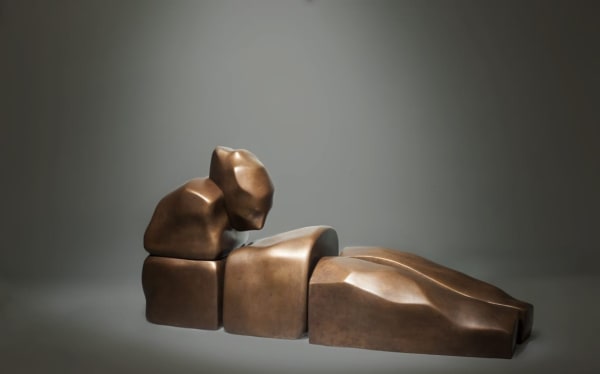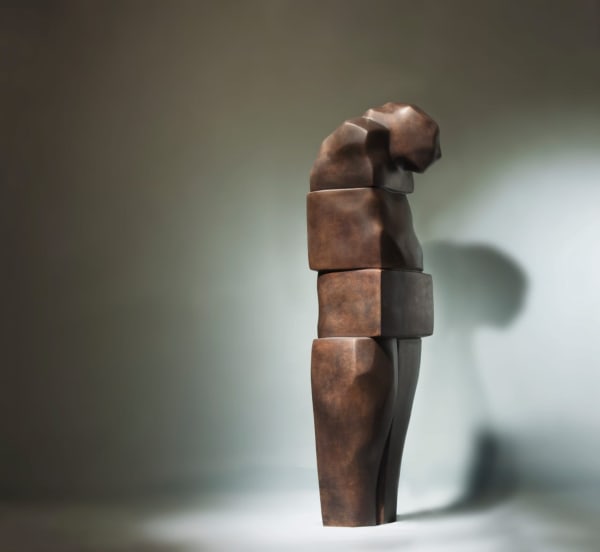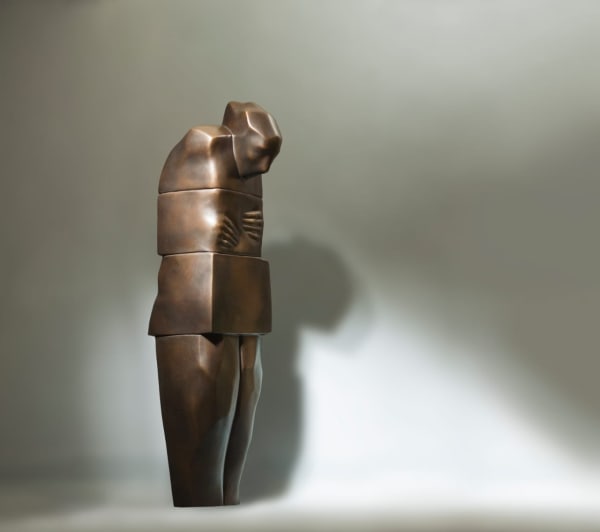Tabari Artspace is delighted to announce its participation in the London edition of 1-54 Contemporary African Art Fair dedicated to art from North Africa and its diaspora.
On display will be a selection of works by painter, Mohamed Abla and sculptor, Khaled Zaki, two seminal Egyptian artists known for pushing the boundaries of their respective mediums. From revolt and the rebuilding of societies as seen in Zaki’s marble sculpture series, Resurrection, to the artistic exploration of the ancient trade routes that connected Asia to the Middle East vibrantly illustrated in Alba’s The Silk Road series, the artists are united by their mutual exploration of ‘journeys’.
Zaki’s journey is a metaphorical one, deeply concerned with the resurrection of his country he zones-in on its evolution in the wake of the Arab spring. In constant reassessment and refinement of his technique, Zaki moved from fluid marble to solid bronze, abstract to figurative in a bid to capture and express the feelings, dreams, and expectations of his society more closely. His fluid figures, once lying down, now stand tall as Egypt finds its strength and pace. Dynamic and culturally-loaded, Zaki’s art continues to reveal the complexities of his country as it battles to rebuild itself. On his output art writer and academic Anthony Downey suggests:
“...We alight upon the twin poles of destruction and rebuilding, and how mechanisms of reassembling have been a mainstay not just of sculptural practice but of social and political orders today, for better and, indeed, worse.”
The works selected from Abla’s The Silk Road reflect upon the trading route that sparked the most storied of journeys. Abla cuts shapes from variously dyed papers, arranging them into compositions resembling animals, heroes, princesses and other folktale figures and imagined scenes derived from the ancient Silk Road system, which was active between 120 BCE and 1450s CE. His abstract artworks synthesise calligraphy, collage and traditional Middle Eastern techniques in a visual exploration of the folktales that spawned from North Africa, the Levant, Central Asia and the Indian subcontinent via the Silk Road network. Like Zaki, a common thread in Abla’s work is the exploration of new methods. For The Silk Road series, the artist embarked upon his own journey spending 18-months tirelessly researching and travelling to countries along the ancient trade route and mastering the art of the Turkish Ebru technique (paper marbling), which is the act of floating paper in a tray filled with water and oil paint. The paint is then carefully transferred to the surface of the paper to create colourful marble-like patterns.









